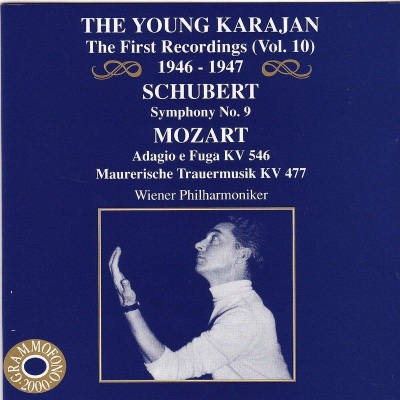
The Young Karajan - The First Recordings 1946-1947, Vol. 10
Herbert von Karajan was the most renowned conductor to emerge from Europe in the post-World War II era — and through fortuitous timing throughout his career, and in spite of controversy that dogged his early years, he was the most recorded conductor of the 20th century, and is likely to remain one of the most visible (and biggest-selling) conductors well into the 21st century. Born in Salzburg and descended from a family of Greek origin with deep roots in Austria — including scholars and physicians in Vienna and Salzburg — he was a music prodigy, playing the piano at three and playing his first recital a year later. He received encouragement in his teens to shift his focus from the piano to the podium, and the experience of hearing Toscanini conduct on a visit to Vienna possessed him to follow that path. Toscanini and — a great irony — Wilhelm Furtwangler became his two idols among conductors; Karajan's teachers included the renowned Viennese conductor (and one time Bruckner student) Franz Schalk. He got his first musical post in 1928 — at age 20 — at the Ulm City Theater, initially as chorusmaster and later as conductor, and over the next seven years he learned how to lead an orchestra from the ground up, serving as coach and every other capacity common to a small but busy musical berth.
